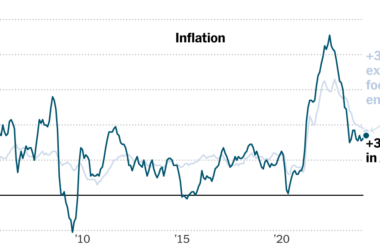Bella Cummins has run Bella’s Hacienda Ranch, her Nevada brothel, for nearly four decades — and for four decades, she’s been shunned by much of the banking industry.
She’s been denied a mortgage and several other loans, while many of her employees have had to wait up to two weeks for their paychecks to clear.
“Despite being a legal establishment, there is, of course, still a stigma attached to the work,” Ms. Cummins, 74, said from Wells, Nev., the only state where prostitution is legal in certain counties. “There is no bank in Nevada that will lend money to a brothel. So, unlike other businesses, we actually have to make the money to spend the money.”
Workers in sex-related industries — whether working in a brothel or a strip club or selling sexually explicit videos online — often risk their safety and face social and employment discrimination. But a lesser-known struggle is that it’s often difficult to maintain a basic bank account and other financial relationships that most people take for granted.
Banks are shutting down what appear to be an increasing number of customer accounts, usually with little explanation, throwing their customers’ lives into chaos. The closures have hit small-business owners who routinely deposit cash, individuals who withdrew larger sums than usual and others who unknowingly transacted with suspected fraudsters, The New York Times has found. But those who work in sex-related industries say they have long lived under that threat of eviction.
Financial institutions are responsible for monitoring the nation’s cash flow for potential criminal activities, including human trafficking and money laundering. In the process they’ve also become quasi-law enforcement, making life-altering calls on who can keep banking and who cannot, based on their own calculus about what kind of risk is worth taking.
But without bank accounts, people are unable to accomplish the most basic of financial tasks: collecting, spending and saving their earnings. Once banished from mainstream bank accounts and everyday financial apps that Americans have come to rely on, sex workers are left with fewer, and often less attractive, options — turning to crypto, for example, or being forced to rely on others to hold their cash, opening them up to exploitation. For most, it’s a continuous source of anxiety.
“Part of the craziness of this is the fear that it instills because it is not consistent,” said Jessica Goedtel, a financial planner in Allentown, Pa., whose practice caters to sex workers. “You don’t know when or if your account will get shut down, what types of payments they are targeting or how they even mark you for closure.”
That comes at a significant cost to workers and small-business owners, many of whom are not breaking the law but sidling up too close to a line that makes financial institutions uncomfortable. And some cross it: While some states are moving toward decriminalizing prostitution, it’s still largely illegal.
Even if the trade were decriminalized, some banking insiders say, their biggest concern would continue to be letting a serious crime fall through the cracks, particularly human trafficking, which can cost them millions of dollars in fines. If a person’s repeated stream of cash deposits sets off an alarm bell, banks may also consider a sexually suggestive social media or public profile, for example, in combination with too many transactions with websites the bank deems high risk.
“For the bank, it’s hard to tell, and there is not a lot of guidance,” said a money laundering investigator at one of the nation’s largest banks, who did not have permission to speak on behalf of the institution. “Things that are innocuous can get pulled in.”
The thresholds for the banks’ alarm bells, or their overall risk tolerance, may be dialed up and down over time, which means someone whose work involves sexually explicit texting, voice and video call service — phone sex for the digital age — may have an account activated one day and shut down the next.
A majority of workers and small businesses in sex-related industries have experienced some sort of financial disruption: Nearly two-thirds of people working in the adult industry have lost access to a bank account or service, like Venmo or PayPal, and nearly 40 percent of them were shut out in the past year, according to a May report by the Free Speech Coalition, a nonprofit trade group for the adult entertainment industry.
Over her 30-year career in sex work, Sinnamon Love, 49, of Brooklyn, has had her accounts closed at most of the major banks — Chase, Wells Fargo and Citi — as well as with PayPal, Square and Venmo.
“I feel like I have one mobile payment app left, and I guard it with my life,” said Ms. Love, using a professional name. Ms. Love, whose career has included online content creation to working as a dominatrix in New York City, is also the founder of the Black, Indigenous and People of Color Collective, which provides support services to online sex workers of color. She won’t use the app for any work-related transactions — she fears she won’t be able to send money to her children or her niece.








